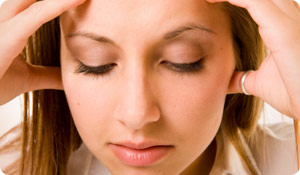
Cold sores, aka "fever blisters," are small blisters that occur around the mouth and occasionally in your nostrils, fingers, chin, gums, or roof of your mouth. They can tingle and ache before and during the blister formation, which usually lasts for a week to 10 days before it crusts and peels away.
Cause of Cold Sores
Cold sores are caused by Herpes simplex virus 1, which is related but not the same as genital herpes (simplex virus 2). In a primary infection, 10 percent of people exposed to the virus will develop sores within 20 days of exposure. Luckily, these blisters rarely scar, though the infection lives in your body in a resting state. A recurrent infection in the same area or nearby is likely, though generally more mild. Cold sores are often triggered by sun, fever, menstrual cycle, or trauma.
Cold Sores vs. Canker Sores
Many people confuse cold sores with canker sores, but canker sores are not caused by the herpes virus. Canker sores are ulcers in your mouth's soft tissues that are caused by a variety of factors like allergic reactions, a vitamin or mineral deficiency, or simply an accidental bite. If you experience recurrent canker sores, speak to your doctor about preventive measures and/or medications that can alleviate the problem.
Curing Cold Sores
Because cold sores are caused by a virus, they can't be completely cured. Here are things you can do to soothe pain and reduce the frequency and duration of outbreaks:
- Apply over-the-counter ointments containing benzyl alcohol (Zilactin) or topical lidocaine
- Try a pain reliever like aspirin, ibuprofen, or acetaminophen
- Hold a warm compress or ice over the blistered area
- Avoid squeezing or picking at the blister
- Stay out of the sun and use sunblock
- Get enough sleep
Stopping the Spread of Cold Sores
The herpes simplex 1 virus is easily passed from an active lesion to other parts of the body or to other people. It is particularly dangerous in the eye, where is can cause corneal scarring and possibly blindness. In order to avoid spreading the virus, you should:
- Use separate towels, personal hygene items, and utensils when you have a cold sore or feel the beginnings of an outbreak.
- Keep away from people at high risk for infections, like babies, eczema-sufferers, or people with compromised immune systems.
- Avoid touching or kissing others when you have an active lesion.
- Try not to touch other parts of your body, especially if you have a cold sore on your finger.
- Wash your hands frequently.
- Stay out of the sun.
When to Seek Medical Help for Your Cold Sores
Cold sores usually do not need professional intervention, but you should speak to a doctor if:
- Your sores don't heal within two weeks or are very painful.
- You have a compromised immune system.
- Your cold sores occur very frequently.
- Your eyes are irritated.
Source:
American Academy of Dermatology
http://www.aad.org/public/publications/pamphlets/viral_herpes_simplex.html





